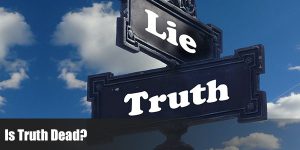Stories are the single most powerful tool in a leader’s toolkit. ~ Howard Gardner, Harvard psychologist
Do you know people who can masterfully tell the right story at the right time?
Quite often, the best storytellers become our managers and leaders.
Even if you have no designs on becoming a CEO or leading a division, you undoubtedly crave more control over your work, ideas, sphere of influence and others’ perceptions.
Effective storytelling can help you gain more control, while also building employee morale, strengthening teamwork and defining how problems can be solved. You’ll find it much easier to develop original and effective solutions to everyday challenges.
It’s in Our Genes
In 1995, two respected economists estimated that 28 percent of the U.S. gross national product (GNP) was involved in commercial persuasion (to include law, public relations, psychology, consulting, education and marketing).
For anyone involved in persuading others (i.e., everyone), survival depends on cutting through the noise and clutter to make the sale or persuade others to adopt our point of view.
Storytelling sells and persuades because it’s an innate skill that has evolved over centuries – something we all know how to do.
In fact, a storytelling gene (FOXP2), discovered in 2001, gives us the physical and neurological skills needed to speak words rapidly and precisely. We use these language abilities to form complex sentences in the proper storytelling sequence.
Yet, some of us are better storytellers than others. Fortunately, practice can help us hone our skills.
Why Storytelling Is Much More Than Charisma
Cold, hard facts don’t inspire people to change. Straightforward analysis doesn’t excite anyone about a goal. Storytelling is key to building executive presence.
Leaders like General Electric’s Jack Welch and Apple’s Steve Jobs excelled at storytelling, motivating people by engaging their emotions. Their stories fired up people’s imaginations and stirred souls.
My point is that leaders who tell good stories aren’t just liked for their charisma. They tell stories because they know how well stories can persuade people to take action. Stories create an optimal learning environment: We quickly process information when it’s delivered in the form of a story, and we personalize the tale so we can relate it to our own experiences.
In the work I do corporate coaching some very smart executives, I’ve found many of them don’t realize how important storytelling is. They’re good at numbers. They’re analytical and excellent at their jobs. What many executives could learn to do better is tell inspiring stories that connect and light a fire under the feet of their people.
What’s your opinion?

Creator of the KASHBOX: Knowledge, Attitude, Skills, Habits
Helping You Realize Your Potential
I help people discover their potential, expand and develop the skills and attitudes necessary to achieve a higher degree of personal and professional success and create a plan that enables them to balance the profit motives of their business with the personal motives of their lives.











